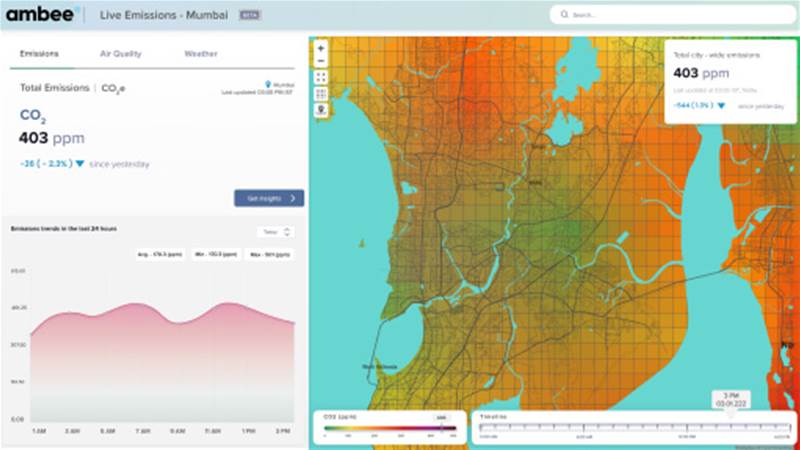India’s climate tech startup Ambee, providing climate and environmental data-as-a-service to enterprises, has selected the document database platform MongoDB to manage its vast and diverse data sets, solve scaling issues, and improve response to API calls.
Ambee’s co-founder and CTO, Madhusudhan Anand told iTnews Asia, that being a data platform the firm has to process data to the tune of four TB (terabyte) per day, from 800 thousand sensors and over 11 earth observatory satellites.
“At any point in time, initially, we had to be ready for 10 to 20 thousand API calls, and today the firm has to be ready for up to eight million API calls, concurrently,” said Anand.
He added that prior to its partnership with MongoDB, Ambee was facing the issue of scaling with respect to the capability to crunch and ETL (extract, transform, load) data and the longer response time per API call.
Initially, the startup was using MongoDB for IoT devices.
Anand said after careful evaluation of RDBS (relational database management system), columnar, and document databases, the team selected MongoDB Atlas to store data in one centralised location and operationalise it for different use cases.
Reduce API response time
Despite scaling from supporting 60,000 API calls a month in 2020, to around 790 million API calls per month in 2023, Anand said the firm has improved API response time from two seconds to under 300 milliseconds.
With MongoDB, all the data is stored together which makes it easy to access, rather than making joins across tables and searching data at different locations, and then bringing them together, he added.
According to Anand, MongoDB Atlas provides the flexibility to choose from cloud providers including AWS, GCP (Google cloud platform), or Azure, and any transition between cloud providers, enterprise and community versions, won't need any application or code modifications.
Unlike adopting separate technologies for various specialised tasks, MongoDB Atlas handles multiple use cases within a single platform, reducing complexity and streamlining management tasks, including data migration, updates, and security patching, he added.
Native geospatial libraries
It offers native geospatial libraries that support queries based on latitude and longitude, capabilities in mining and querying vast datasets, and provides text search capabilities, enabling partial, wildcard, and autocomplete searches using the built-in Apache Lucene search engine.
Ambee uses Atlas for running AI models to offer data-as-a-service and give smart suggestions.
Its AI tool, Ambee AutoML, acts as a central hub, making it easy for developers, even those without extensive machine learning knowledge, to train high-quality models, making machine learning accessible to a wider audience, aligning with Ambee's goal of using data to combat climate change.
Anand mentioned with growing datasets, the older data eventually becomes less relevant and doesn’t always need to be readily accessible, hence the team is exploring adding Atlas data lake.
It can automatically move older data to a lower-cost storage solution, while still allowing to query both the active cluster and the archived data, he added.









